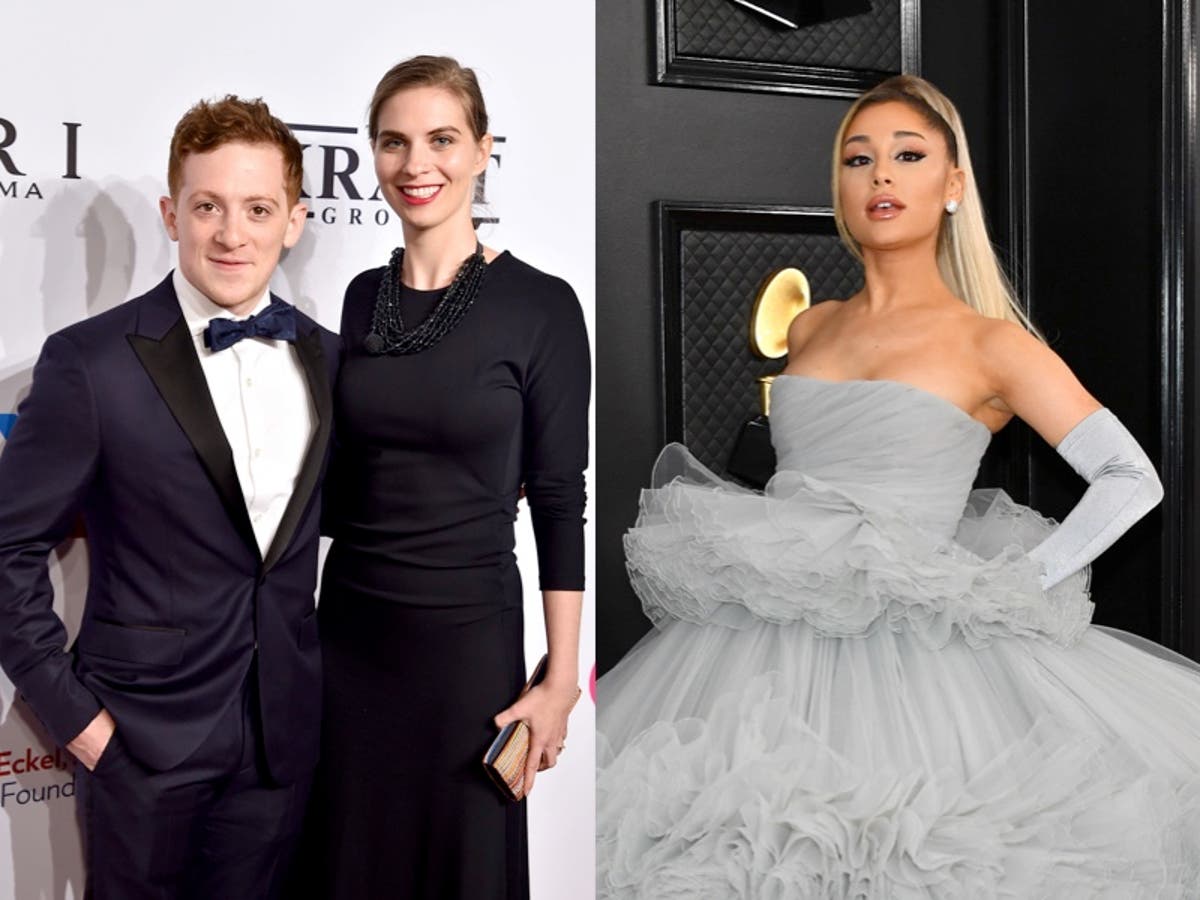If women are taught one thing from an early age, it’s to hate other women. It really is the oldest trick in the misogyny rulebook, one that ensures we’re doing the patriarchy’s work for it. The conditioning is so deep, and we default to it so frequently, that often, we don’t even realise we’re doing it.
It’s the way we’re inclined to compete against the female colleague with the same job as ours. Or how we can’t help but hate-slash-obsess over all of our partner’s female exes and compare them to ourselves. In no circumstance does it become more relevant, though, than when your partner leaves you for another woman. Now imagine that woman is a global celebrity.
According to pop culture lore, that’s the exact situation Dr Lilly Jay found herself in last summer, when it was revealed that her ex-husband, Ethan Slater, had started dating his Wicked co-star, Ariana Grande, who’d also recently split from her husband, Dalton Gomez. The turnaround was fast: a matter of weeks, if we’re to believe the rumours. On top of this, you have the fact that Wicked has been inescapable for the past few months, a cinematic behemoath that has taken over our hearts and minds.
Where does this leave Dr Jay, then, who had relocated to London with their two-month-old baby to support Slater while he filmed Wicked? She has told us exactly where, actually, in a new viral essay for The Cut, in which she recounts with great care and subtlety how her life has changed since her highly publicised divorce.
Given the circumstances, some might’ve clicked on the essay expecting to read Dr Jay expressing some of the internalised misogyny we’ve all been reared on. Maybe they were expecting her to badmouth Grande, or blame her divorce on the pop star. Perhaps they were hoping for an evisceration of Wicked, or some sort of pun on witches and infidelity.

But Dr Jay delivered none of that. Instead, her writing offered a nuanced and compassionate look at what it’s like to suddenly have your life thrust under the limelight when up until this point it has been predicated on anonymity. As a psychotherapist, Dr Jay had devoted herself to altruism in a profession that relied on her being able to leave her own life at the door; her job was to help others and render herself invisible in the process. Thanks to her split from Slater, she was suddenly no longer able to do that. And examining everything that means is what takes up the bulk of her essay.
“As a therapist, part of what I could offer my patients was the experience of being in relation with someone else without the complexities of a personal relationship,” she writes. “I was never meant to be fully known to them.”
Of her own dwindling relationship with Slater, she says: “As a perinatal psychologist, I knew all the statistics — how vulnerable a marriage is in the postpartum period, how vital community connection is in preventing depression and anxiety, how new parenthood impacts a whole family — but I confidently moved to another country with my 2-month-old baby and my husband to support his career. Consumed by the magic and mundanity of new motherhood, I didn’t understand the growing distance between us.”
All that Dr Jay says about Grande and Slater’s relationship is that days with her son are “sunny” while “days when [she] can’t escape the promotion of a movie associated with the saddest days of [her] life are darker”. She alludes to coparenting well with Slater, writing: “Both of us fiercely love our son 100 percent of the time, regardless of how our parenting time is divided.”
The tacit, unsaid message of the essay is clear: Dr Jay won’t have her divorce reduced to tawdry gossip, nor will she see it as an opportunity to tear another woman down. Society might want to pit her against Grande but she won’t succumb to that. Frankly, it’s beneath both of them. And I’m so pleased to see a woman in the public eye, reluctantly or otherwise, using her voice to make that exact point. Because of course it’s possible for Dr Jay to speak out and have her say without needing to bring Grande into it.
If the rumours are true, the situation Dr Jay finds herself in has nothing to do with Grande, anyway. It has everything to do with Slater, who, of course, is free from the shackles of judgement for leaving his wife and taking up with a pop star because, well, he’s a man. But that’s an entirely different article. My point is that if Dr Jay’s essay proves anything, it’s the tedious futility of internalised misogyny. And that despite what we’ve been told, women don’t have to hate one another, even when the world wants us to.





